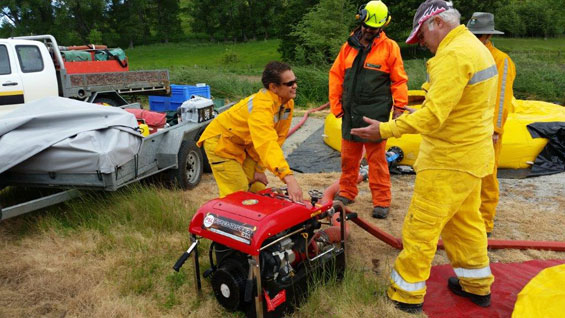East Coast ranger's reflections
Archived content: This media release was accurate on the date of publication.
Introduction
Malcolm Smith, a community ranger based in Wairoa, reflects on three decades at DOC.Date: 04 April 2017
DOC turned thirty on 1 April. DOC was formed by merging conservation aspects of the Forest Service, Department of Lands and Survey and the Wildlife Service in 1987.
The creation of DOC was a declaration that New Zealand was a country that valued its nature, wildlife and remaining wild places, and that we were committed to protecting it for future generations.
After leaving school in 1971, Malcolm started at the Wildlife Service. He joined the Department of Lands and Survey, National Parks and Reserves in Timaru in 1980 after a short break farming. He then had a stint at Banks Peninsula before transferring to Aniwaniwa in 1985 and in 1987 to DOC.
Malcolm worked for DOC in Aniwaniwa, Wairoa, Napier and Gisborne. He worked in various roles ranging from field centre manager and supervisor, to partnerships and community ranger.
“I remember when I first started areas were divided into districts. I worked in the Urewera district, which also included Whirinaki, Te Urewera and Wairoa. The first district conservator was based at Minginui with the regional office in Rotorua.”
“Technology was a challenge; a phone call from Te Urewera was through a telephone exchange operator. A computer was used for the accounts, wages were paper-based and invoices processed locally. Today, it’s much different with internet, mobile phones, email and videoconferencing enabling rangers to be more connected while in the field.”
Malcolm is passionate about fire management. He has been involved in fighting fires on the East Coast, around the country and overseas in Australia, Canada and USA.
In the early days, the Forestry Service was responsible for rural fire and after corporatisation this shifted to rural fire authorities including DOC and local councils.

Malcolm Smith supervising staff fire training
Image: Sandra Groves | DOC
In 1987, most fire equipment transferred to Timberlands and DOC had minimal gear. But, DOC had additional responsibility and lifted its game in training staff to handle fires. A significant change is imminent with the advent of Fire and Emergency New Zealand due to take effect on 1 July.
Malcolm says he’s really enjoyed his work with DOC. The best thing is the people that I’ve worked with over the years. Anyone who works for DOC really wants to be here and is committed to conservation. It’s a privilege to work alongside such a dedicated team of people.”
Over the last three decades, in addition to being involved in a wide range of critical conservation projects, Malcolm says he has increased his skills and grown as a person in his own right. He looks forward to continuing to contribute to conservation on the East Coast for future generations.
Memorable conservation milestones on the East Coast include:
- the formation of Te Tapuwae o Rongokako Marine Reserve in 1999
- Whangaokeno Island being declared rat free in 1999 and the transfer of tuatara to the island from Stephens Island/Takapourewa in 2012 (agreement between Ngāti Porou and Ngāti Kōata)
- the success of the Whinray Kiwi and Weka project was linked to the building of the suspension bridge over the Motu River and Motu Falls, a partnership between DOC and the local community
- the opening of the Te Kuri Farm Walkway in the early 1990s which began at the initiative of the late Murray Ball approaching DOC
- DOC becoming responsible for Cooks Landing Site National Historic Reserve in 1990 and it being designated a National Historic Reserve in the same year
- A strengthening of relationships with local treaty partners and community groups to grow conservation.
Contact
Sandra Groves, Ranger, Community
Mobile: +64 27 539 6436
